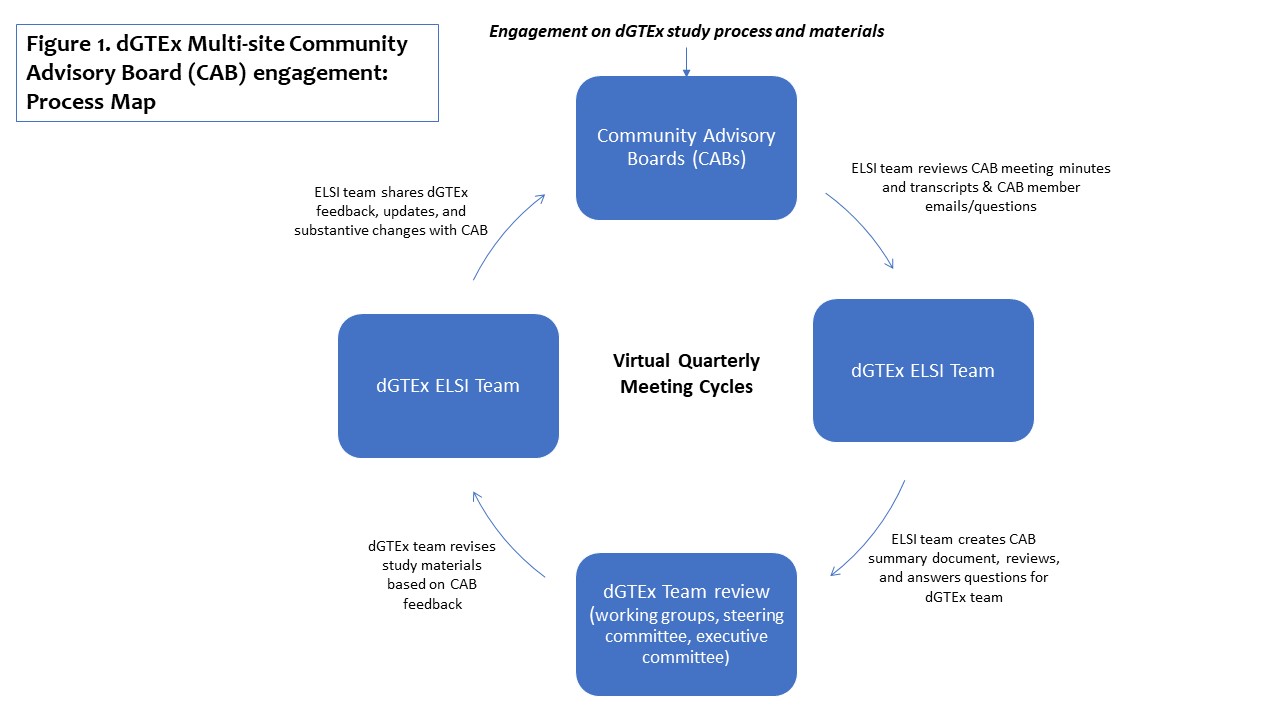Health Equity/Social Determinants of Health
Session: Health Equity/Social Determinants of Health 3
462 - Early Lessons in Community Engagement from the Developmental Genotype-Tissue Expression Project (dGTEx)
Friday, May 3, 2024
5:15 PM - 7:15 PM ET
Poster Number: 462
Publication Number: 462.92
Publication Number: 462.92

Raquel G. Hernandez, MD, MPH (she/her/hers)
Associate Professor of Pediatrics
Johns Hopkins All Children's Hospital
Tampa, Florida, United States
Presenting Author(s)
Background: The developmental Genotype Tissue Expression Project (dGTEx) is creating the first pediatric genomic repository. The project will catalog and analyze transcriptional profiles from a wide variety of post-mortem pediatric tissues, spanning neonates through adolescents. A central goal is for diverse populations to equitably benefit from this large-scale pediatric genomic research. However, significant challenges remain to achieving this ambitious goal. The American Society of Human Genetics 2022 policy statement recommends incorporating community stakeholder feedback in all genomic research phases as a core strategy to address the historical underrepresentation of marginalized groups. Yet, many continue to perceive this approach as impractical and time-consuming. The project includes a substudy focused on assessing the ethical, legal, and social implications (ELSI) of dGTEx. Consistent with ASHG recommendations, this substudy reflects ongoing efforts to engage community stakeholders and may offer early lessons learned in meaningfully integrating stakeholder feedback while adding value to broader genomic study efforts.
Objective: To describe ongoing community-engagement strategies and outcomes from the dGTEx ELSI substudy.
Design/Methods: Prior to opening dGTEx enrollment, the ELSI study implemented a multi-site community advisory board model (mCAB), leveraging partnerships with existing U.S. organ procurement organizations (OPOs) and with a broad goal of inclusion of diverse member perspectives. We operationalized quarterly virtual meetings for each CAB site in dGTEx years 1-2. We invited mCAB input on core study materials, including study authorization, the dGTEx participant infographic, and the dGTEx family website. We describe our mCAB engagement process and outcomes.
Results: Our mCABs have successfully engaged diverse stakeholder perspectives (n=29 CAB members) from the inception of a large-scale project using mCAB cycles with virtual meetings and an integrated feedback process (Figure 1). mCAB feedback resulted in substantive project modifications, including visual and content changes to the dGTEx infographic (Figure 2). Incorporating mCAB feedback has not delayed the larger genomic project.
Conclusion(s): .Integrating mCAB feedback can occur in parallel with genomic study efforts and creates opportunities to enhance study messaging to participants and engage underrepresented stakeholders in genomic research. These strategies could ultimately enhance the diversity of participants and broaden the benefits of dGTEx.

.jpg)
